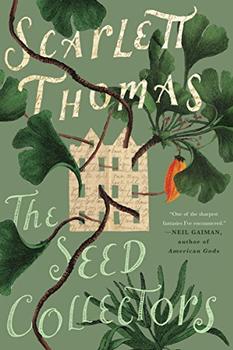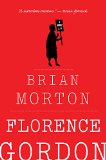Summary | Excerpt | Reading Guide | Reviews | Beyond the book | Read-Alikes | Genres & Themes | Author Bio

"'A bored woman is a dangerous woman,'" Anna Benz's analyst, Doktor Messerli, tells her on more than one occasion. Anna, who has confessed much — but certainly not everything — to Doktor Messerli, wonders if her analyst knows just how right she is. For Anna is certainly bored, and she has set off down a path that may well lead to the destruction of herself and her family.
Anna, an American-born woman in her late thirties, has lived in Zürich since her marriage nearly a decade prior, to a Swiss man, Bruno, who works for Credit Suisse. In that time, Anna has made few friends and little attempt to learn the language of her adopted country — until Doktor Messerli urges her to sign up for an intensive German class while her two older children are at school. When Anna does so, she finds herself skilled, if apathetic, at picking up the language — but hardly as adept as she is at picking up a fellow classmate, a Scotsman named Archie, with whom she's soon having a passionate affair.
As Anna increasingly neglects her three young children (whom she does love dearly) in favor of more time with Archie, the reader eventually learns that this affair is neither Anna's first nor likely her last infidelity. "A bored woman is a dangerous woman," indeed — and Anna's boredom and carelessness may put her whole life — about which she's been deeply ambivalent until it's possibly too late — in jeopardy.
The narrative of Anna's descent into increasingly desperate behavior is interspersed with brief exchanges from her sessions with Doktor Messerli, a Jungian analyst who prompts her patient to dissect her dreams and to become an active figure in her own life, someone who makes things happen rather than someone acted upon. The author also riffs on the idea of active and passive constructions in her occasional digressions into the peculiarities of German vocabulary and grammar, passages that take on increasing thematic resonance as the novel progresses: "In German, an action that is done by one's own self to one's own self requires a reflexive verb...To lie down. To feel either well or poorly. To fall in love. To behave. You are the object as well as the instigator. You do these things to yourself." All these present-day musings are eventually interwoven with Anna's remembrances of an earlier affair, one whose echoes still resonate, for better or for worse, in her lonely life.
At times it's difficult to discern just why Anna is so desperately unhappy, why she finds her husband (who seems mostly harmless enough, just perhaps dull or disengaged, more than a little blind to his wife's unhappiness) so infuriating and unsatisfactory, why she actively shuts out others' overtures of genuine friendship and kindness. She is occasionally frustrating for that reason, but also fascinating to consider in her complexity and her thoroughly realistic conception of herself as a passive victim of circumstances. Perhaps too late, Anna realizes that she might have been wrong to think that way: "She could go anywhere she wanted. The going wasn't the problem. The problem was belonging where she went."
Zürich — chilly, precise, reserved, and yet beautiful, is also almost a character in Essbaum's novel, with whom Anna has a complicated and fraught relationship, as she wanders its streets and train stations to avoid going home to the proscribed life she professes to loathe. Throughout, all these relationships — between Anna and the city, the language, her lovers, her family, and ultimately herself — are conveyed in poetic, at times haunting prose, using language as precise and well-crafted as a Swiss watch. Hausfrau is by turns perceptive, sensual, philosophical, and profoundly sad — the kind of novel that readers' minds will return to long after they reach the shocking final sentence.
![]() This review was originally published in The BookBrowse Review in March 2015, and has been updated for the
April 2016 edition.
Click here to go to this issue.
This review was originally published in The BookBrowse Review in March 2015, and has been updated for the
April 2016 edition.
Click here to go to this issue.

If you liked Hausfrau, try these:

by Scarlett Thomas
Published 2017
The Seed Collectors is a tale of inheritance, enlightenment, life, death, desire and family trees by a literary star in the UK.

by Brian Morton
Published 2015
A wise and entertaining novel about a woman who has lived life on her own terms for seventy-five defiant and determined years, only to find herself suddenly thrust to the center of her family's various catastrophes.
Your guide toexceptional books
BookBrowse seeks out and recommends the best in contemporary fiction and nonfiction—books that not only engage and entertain but also deepen our understanding of ourselves and the world around us.